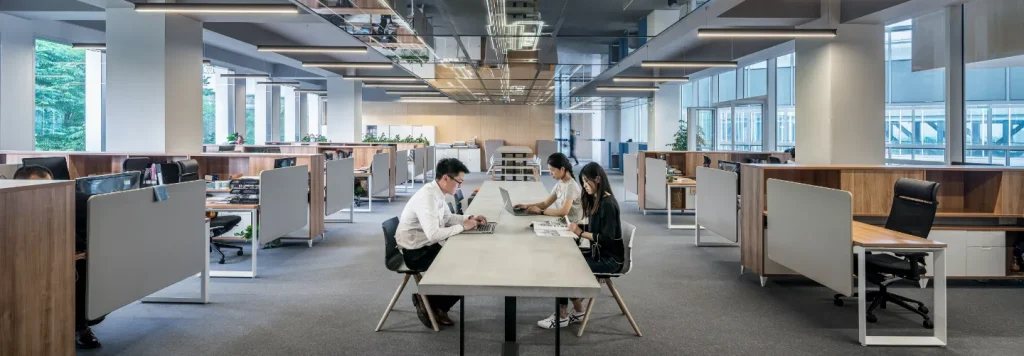Businesses need commercial property insurance to guard against monetary losses brought on by physical asset damage. But not every commercial property has the same insurance requirements or dangers. The different kinds of commercial property insurance policies that are available are examined in this article, along with how they vary depending on the kind of property.
Basic Commercial Property Insurance Structure
Before diving into property-specific policies, it’s important to understand the foundation of commercial property coverage:
Building Coverage:
This protects the physical structure of your commercial property, including permanently installed fixtures and equipment. Coverage typically includes damage from fire, storms, vandalism, and certain natural disasters.
Contents Coverage:
This covers business personal property inside the building, including furniture, equipment, inventory, and supplies. The right amount of contents coverage varies significantly by business type.
Business Interruption Coverage:
This helps replace lost income when a covered peril forces temporary closure or reduced operations.
Retail Property Insurance
Retail businesses face unique risks related to customer traffic and inventory management.
- Inventory Protection: Higher limits for seasonal inventory fluctuations
- Plate Glass Coverage: Protection for storefront windows and display cases
- Business Income Coverage: Critical for retailers who depend on foot traffic
- Liability Extensions: Coverage for slip-and-fall accidents from customer traffic
Special Considerations:
- Retail operations in high-crime areas may face higher premiums
- Businesses with valuable merchandise need robust security measures
- Shopping center locations may have specific insurance requirements from landlords
Office Property Insurance
Office buildings typically house professional services with different risk profiles than retail.
- Electronic Data Processing Coverage: Protection for computers, servers, and data
- Professional Papers Coverage: Insurance for important documents and records
- Lower Liability Premiums: Generally have fewer public visitors than retail
- Tenant Improvements Coverage: Protection for custom buildouts in leased spaces
- Shared office buildings may have complex liability arrangements
- Modern offices with expensive technology require specialized electronics coverage
- Coverage for remote work equipment may need attention
Industrial/Manufacturing Property Insurance
These properties face heightened risks related to equipment, processes, and materials.
- Equipment Breakdown Coverage: Protection for specialized machinery
- Raw Materials and Finished Goods Coverage: Higher limits for inventory
- Business Income Coverage: Extended periods for complex operations
- Pollution Liability: Protection against environmental damage claims
- Higher fire risk often leads to stricter underwriting requirements
- May require specialized endorsements for unique equipment
- Often need higher liability limits due to operational hazards
Warehouse and Distribution Facilities
Storage and distribution operations have high concentrations of value in single locations.
- Peak Season Coverage: Fluctuating inventory values throughout the year
- Transportation Coverage Extensions: Protection during loading/unloading
- Sprinkler Leakage Coverage: Important due to extensive sprinkler systems
- Contingent Business Interruption: Protects against supply chain disruptions
- Location relative to flood zones is critical for rating
- Building construction type heavily influences premiums
- Security measures significantly impact insurability
Hospitality Properties
Hotels, restaurants, and entertainment venues face unique exposures.
- Food Spoilage Coverage: Protection against refrigeration failures
- Liquor Liability: Coverage for alcohol-related incidents
- Extended Business Income: Longer recovery periods after disasters
- Guest Property Coverage: Protection for items belonging to customers
- Older buildings may face higher premiums or coverage restrictions
- Kitchen operations increase fire hazards
- Seasonal operations may benefit from specialized coverage periods
Specialized Property Types
Some properties require even more tailored approaches:
Healthcare Facilities
- Medical Equipment Coverage: High-value specialized equipment
- Utility Service Interruption: Critical for patient care
- Evacuation Expense Coverage: Costs associated with relocating patients
Agricultural Properties
- Crop Insurance Coordination: Works alongside specialized crop policies
- Equipment Coverage: Protection for farm machinery
- Livestock Coverage Extensions: Optional protection for animals
Factors Affecting Policy Selection
When comparing policies across property types, consider:
- Location Risks: Exposure to natural disasters, crime rates, and fire protection
- Building Construction: Frame, masonry, or fire-resistant materials affect premiums
- Occupancy Type: How the property is used drives coverage needs
- Protection Class: Local fire department quality and proximity
- Claims History: Prior losses impact availability and cost of coverage
Coverage Enhancements Worth Considering
Regardless of property type, these endorsements often provide valuable protection:
- Ordinance or Law Coverage: Pays for rebuilding to current codes
- Flood Insurance: Often excluded from standard policies
- Earthquake Coverage: Essential in seismic zones
- Equipment Breakdown: Protection for mechanical and electrical failures
- Cyber Liability: Increasingly important for all business types
The right commercial property insurance policy should be tailored to your specific property type and business operations. While retail businesses need to focus on inventory and customer liability, industrial properties require attention to equipment and environmental risks. Working with an insurance broker who specializes in your industry can help ensure you have the appropriate coverage for your property type and business needs.
Regular policy reviews are essential as your business evolves, particularly when making significant changes to your property, operations, or locations. By understanding the nuances of different commercial property policies, you can make informed decisions to protect your business assets effectively.
